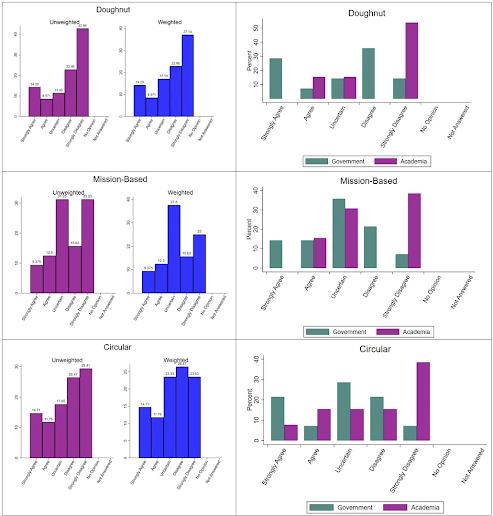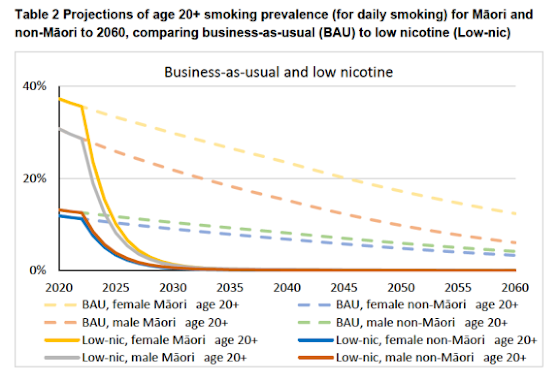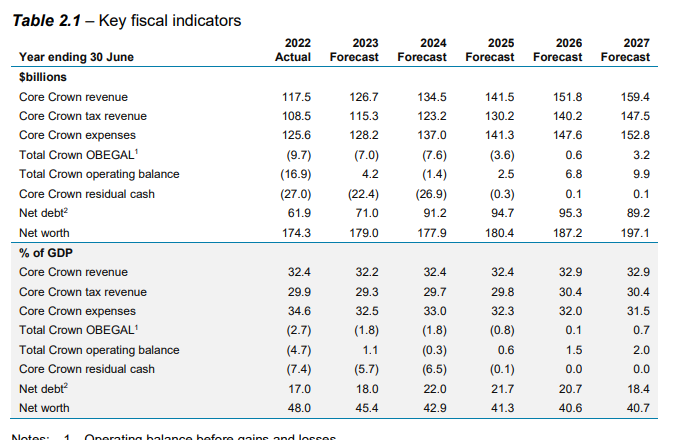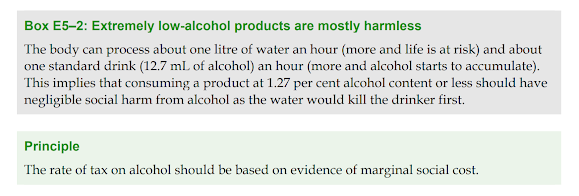Suppose you got $500 in annual value from owning your car. Would you consider paying $6500 per year to insure that car? I'm not talking about third party liability or anything like that, just insurance for the value of the car. Would it make sense to pay thirteen times the annual value of the car for insurance against the car failing?
Obviously not, right?
My last couple of columns over at Newsroom go through the latest report from the Infrastructure Commission on the cost of the Auckland urban-rural boundary, and the proposed Auckland Future Development Strategy.
Together, they mean that Auckland is blowing about $1300 per square meter in real value (or about $65 per year at a 5% discount rate) in order to protect precious agricultural land that might generate maybe $5 per square meter in gross (not net) potato revenues.
Bonkers. But such is the Cult of the New Zealand Potato.
Adherents of the Cult of the New Zealand Potato and Ancillary Horticultural Products worry greatly that if houses are built on Precious Agricultural Land, there will be no food.
Normally we'd figure that, as developers buy agricultural land for housing, the price of remaining agricultural land will go up if it's actually scarce. And that that process is an automatic governor. But the Potato Cult knows that markets don't work that way and that markets undervalue that which is truly priceless: potatoes, grown on very specific pieces of land, decades from now.
The Potato Cult, combined with restrictions under the National Policy Statement on Highly Productive Land, and a few other bits of wiggle room, gave Auckland Council all the room it needed to ban new subdivisions.
So.
My column at Newsroom, a fortnight ago, covered the latest paper from the Infrastructure Commission. The Commission found that a square meter of land just inside Auckland's urban boundary is worth about $1300 more than a square meter of land on the other side of the boundary, after accounting for the costs of making ag land ready for urban use.
$1300 per square meter. $600k added cost for a 500sqm section at the edge of town. $5 million per acre.
If you're willing to pay half a million more for a home close to downtown amenities, as compared to one out in the suburbs with a long commute, just think through the effect when a house at the edge of town costs $600k more than it really ought to. Prices are inflated across the entire urban gradient. Density is great, but rules banning building at the fringes make central townhouses more expensive too.
So far so good. The rules at the fringes are dumb, but our enlightened leaders will see that and fix things right?
This week's column went through Auckland's draft Future Development Strategy. The FDS is, I think, the first to be produced under the new sets of rules. It doesn't bode well for the future. You see, Auckland Council reached for every possible excuse for restricting development. The incentives they face have not changed, so of course they would.
The FDS basically forbids the private plan changes that have otherwise enabled paddocks to turn into housing.
There are lots of reasons.
Since NPS-HPL restricts turning ag land into housing, they've noted the importance of that highly productive land. Sure, NPS-HPL allows building on ag land if there's a good case for it, but Auckland Council doesn't want a good case for it. They want to prevent development.
Since councils are now supposed to consider carbon emissions, that gets brought in here too. Never mind that urban emissions are covered by the ETS. And ignore that it would make sense to set new bus routes to any big new developments anyway.
Neither of those are the underlying reason. They're the palatable excuses. The former appeals to the potato cult. The latter to cargo-cult notions of how to get emission reductions.
If we took the potato cult seriously about what they claim to want, it would almost certainly be more cost-effective to build a giant cold-store facility for a Strategic Potato (and Ancillary Horticultural Products) Reserve. Keep five years' supply. Pretend we're in Game of Thrones and Winter is Coming. Every year, release the oldest frozen supply from the reserves while replenishing with fresh. Would tide us through all manner of implausible scenarios.
It would be really really stupid. But it would be less stupid than banning building on Precious Agricultural Land when letting housing be built on that land is worth an extra $1,300 per square meter - or about $65/sqm year if you run it at a 5% discount rate.
As compared to about $5 gross revenue/sqm/year from potatoes.
Which is where I got the numbers for my stupid insurance example at the start. You shouldn't be willing to pay more than the value of a thing as an insurance payment against the thing ceasing to exist. But that's what we're doing. We are foregoing $65 in value-as-housing per year to protect $5 in gross potato revenue per year, just to be sure we never run out of potatoes (which can be imported way more easily than housing services, if we don't impose anti-dumping duties, which NZ has threatened before when frozen European potatoes were cheap).
Except that's just the rationalisation.
The FDS points to the real reason. Council doesn't like out-of-sequence or leapfrog developments because that makes it harder to plan, fund, and finance infrastructure. They want development to happen exactly in council's planned sequence, so any new water pipe very quickly has lots of users to help cover its cost, because council at its budget constraint has to pay off infrastructure very quickly, because infrastructure funding and financing is a mess. And because council sees little of the upside from growth but has to deal with the potato cultists, why bother? Failing to fix the problem also helps prop up property values for existing owners in town - they vote, while those unable to move to Auckland don't vote in Auckland elections.
Fundamentally silly outcome, but right in line with what you'd expect given the incentives.
These restrictions will worsen the problem that the Infrastructure Commission pointed to. Making it harder to build at the urban/rural boundary will reinforce that land price differential and help ensure that the carbon-friendly walkable downtown developments remain unaffordable.
How to get out of the mess?
- Let councils use project-based funding with long-term infrastructure bonds, ring-fenced away from council main balance sheets, financed by payments over time from the beneficiaries of that infrastructure. Making it not impossible to fund and finance the kit needed to support growth would get rid of one important barrier.
- Let councils share in the benefits when they enable, rather than block, urban economic growth.
- Over the medium term, have tighter restrictions than NPS-UD and MRDS on councils where the median house price is very high relative to median household incomes - with freedom earned by restoring housing affordability. Council cultures will take a long time to shift otherwise.






